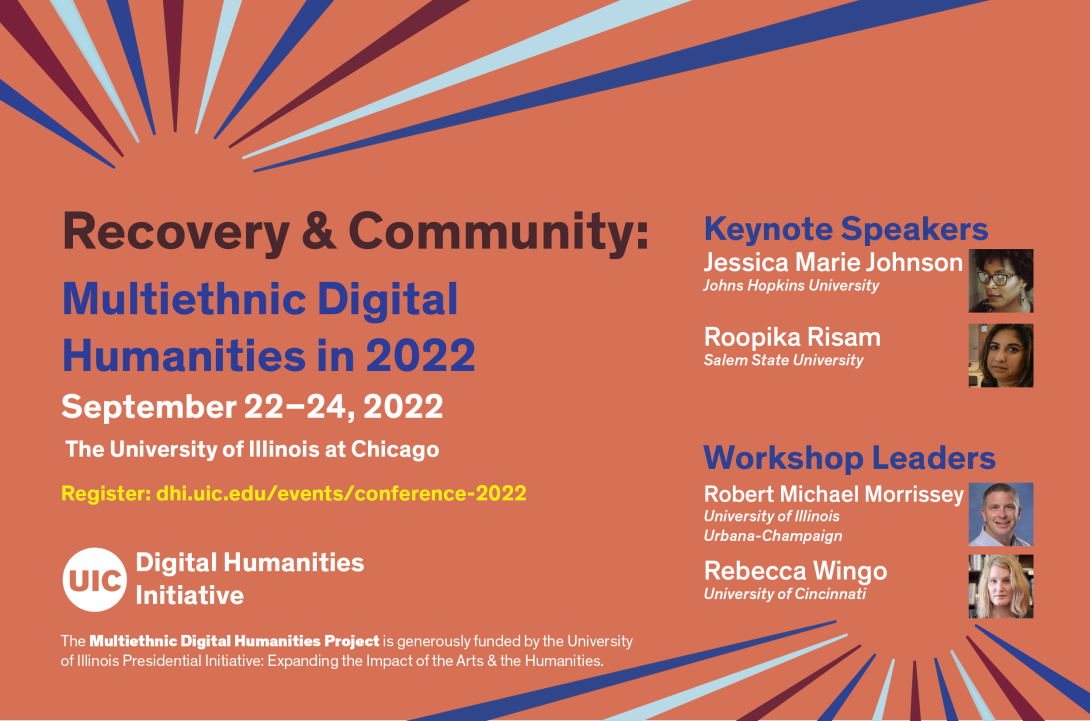Welcome to the Second part of my unsual (in a good sense! ) Saturday morning at the “Recovery and Community: Multiethnic Digital Humanities in 2022” Conference. As you may remember, I told you in the first part of this blog that Saturday was my first day out of bed after being sick. So, by the time of the second presentation, I was seriously thinking about leaving because I did not feel well. Yet, I stayed for the workshop anyway and didn’t regret it.
“Hands-on History Harvest”
First, I want to point out that this workshop was divided into two different moments. First, Prof. Wingo talked about her project working with the Rondo community of St Paul, and more precisely, with Rondo Avenue Inc.
At the beginning of her presentation, Dr. Wingo stated that the main characteristic of Digital Ethnic Studies always implies a relationship with the community. The work performed is not merely about the community, but with the community. In other words, this type of work is a trust– building exercise between institutions and communities. Thus, its participants must recognize the agency of the ethnic communities, acknowledging their status as human beings and not merely as objects of science –as years of deeply rooted colonialism in the scholarly work have led us to assume.
Hands-on History Harvest started as a project for an undergraduate class. Their mission was to give voice to the Rondo community of St. Paul. This community belongs to a predominantly African American neighborhood that, during the 60s, was destroyed by the construction of a highway that erased Rondo ave, the community’s main artery. This avenue not only connected the two halves of Rondo, but also was the commerce street of the neighborhood.

Rondo’s Wikipedia entry.
You may be wondering how the task of giving a voice to this community could possibly be performed. First, Dr. Wingo contacted the community and proposed them to build a web archive, showing the community’s history by Rondo’s inhabitants. They did so through interviews, as well as by receiving artifacts that members of this community shared as pieces of their collective history. This project was an intense exercise that required different efforts: students did the interviews, recorded the artifacts, helped with the website building, etc. – all of which would not have been possible without the member’s willingness to share their stories and artifacts, thereby playing the most significant role.
During the presentation, Prof. Wingo said that on more than one occasion, creating this archive, or this type of archive, gives their rightful place back to a historically shut down community, and that the feelings that aroused in telling their history are crucial in our society. I believe there is no better way to summarize the importance and potential of Digital Ethnic studies. And in connection to Dr. Risam Lesson nr 1, this work shows us that “Digital Humanities has untapped potential for social justice.”

Leave a Reply